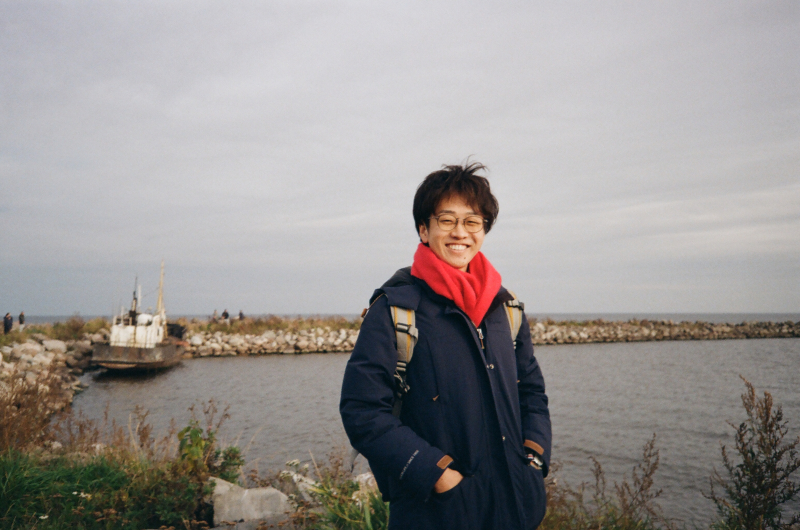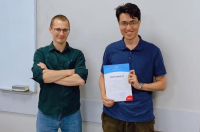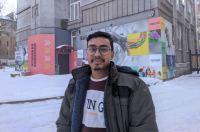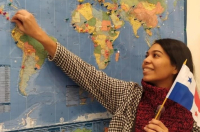Tell us something about your exchange program.
My exchange program is for one semester. I arrived in St. Petersburg in the month of August and I will be staying here until January. I am currently in the fourth year of my Bachelor’s studies in Life Sciences at the Kindai University in Osaka Prefecture. In Japan, every university focuses on basic concepts for the first three years. In the fourth year, students are introduced to specialization topics. At ITMO, I am studying biotechnology with a focus on bioinformatics because I love working with computers. I am also learning several programming languages such as Python and R. My curriculum also includes many subjects such as neurobiology, business development, and Russian language.
Do you find learning Russian difficult?
I am currently studying intermediate Russian because I already know the basics. I have been learning the language on my own for the past two years. I started learning Russian because of the agreement between the governments of Japan and Russia that allowed the two countries to collaborate on science and development projects. In 2018, my university in Japan was chosen for one such project. Since then, it has been my dream to study in Russia. Therefore, I started preparing myself for it as early as 2019!
What projects are you currently working on?
I am working on molecular docking and protein-protein interaction using various bioinformatics tools. I also am trying to develop a tool using Python and R that can be used for visualizing such interactions.
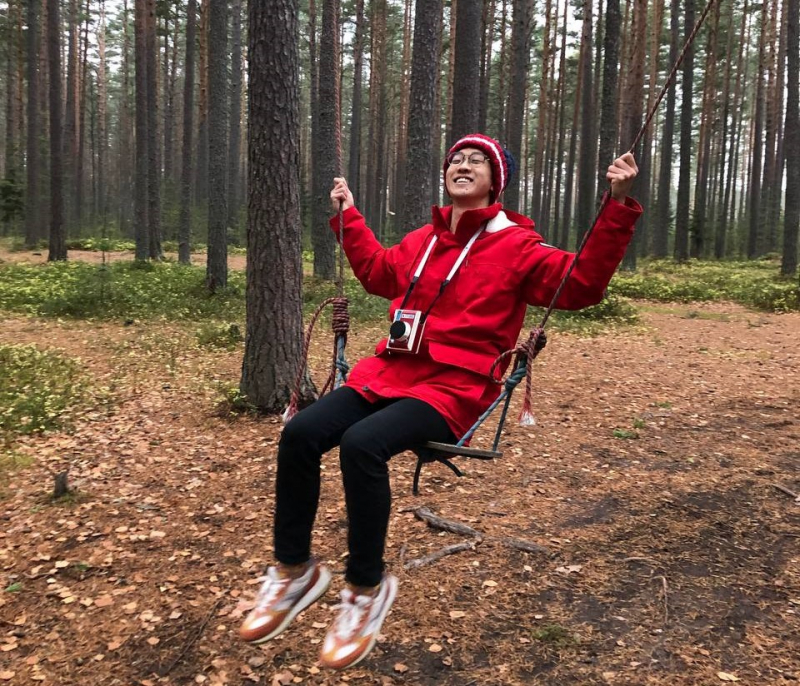
What impact do you think your project will have on the world?
This technology is relatively new and is not well studied yet. But it does have a lot of potential. In the future, it can be used to study how proteins in our bodies interact with one another. It will help us better understand how a complex disease like cancer manifests. It will also help scientists develop better drugs for treating such diseases. In a nutshell, it will really improve the healthcare system globally.
What are your future plans?
I want to apply for an English-taught Master’s degree program in Europe. I haven't decided on the country yet. Maybe Germany or Russia.
How has your experience in St. Petersburg been so far?
Words aren’t enough to express my feelings about this city! I am a very adventurous person, so I rarely stay inside. It is also my first experience of living in a dormitory with other people. In Japan, we don’t share rooms so at first, it was a little weird for me. Therefore, I preferred to stay out most of the time.
I also love exploring new places. I traveled to Yagodnoe during Halloween with the members of the English speaking club. It was a really fun experience. I was the center of attention as I was wearing a kimono. Yagodnoe is a very beautiful place. I participated in various Halloween quests. They were really scary!
What other places have you visited?
I have also visited a lot of museums like the Hermitage and the Russian Museum. I am a big fan of art so I really liked the sculptures and the paintings. The city of St. Petersburg is really picturesque. My favorite place is the Palace Bridge over the Neva River. It is most beautiful during sunset. The orange, blue, and red gradient of the sky during this time adds to its grandeur.
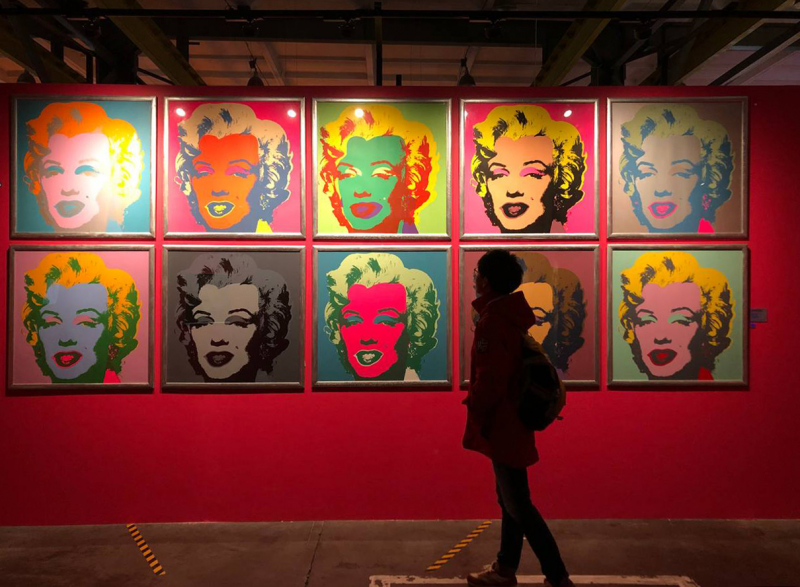
Kota also appreciates art and loves to visit museums and galleries. Photo courtesy of the subject
Did you find any good Japanese restaurants here?
In my opinion, Japanese food is the best one in the world. My favorite dish is miso soup with rice. I was surprised to see so many Japanese restaurants and cafes here in St. Petersburg. Taiyaki cafe serves the best and most authentic Japanese food here. I also visited a ramen shop here and I have to say the taste is really close to the original ramen of Japan.
Which traditional Japanese dishes would you recommend trying?
You should definitely try Takoyaki. It is a special dish of Osaka. It is made with wheat-flour-based batter filled with minced or diced octopus, tempura scraps, pickled ginger, and green onion. It is absolutely mouth-watering!
According to Japanese tradition, you pray before your meal. What is its significance?
In Japan, we say Itadakimasu (いただきます) to pay respect to the food and the people who contributed to its preparation. It can be translated as I humbly receive. Japanese children are taught to say this from a very young age. We practice saying this phrase with folded hands, before every meal. Not only do we pray before our meals, but we also do it after we have finished eating. We say Gochisousamadesu (ごちそうさまです), which is a way of saying Thank you to those who prepared, cooked, and served the food. For example, if we eat fish, we say thank you to the fish, the fisherman, the fishmonger, the cook, and the person who serves it. It is a beautiful practice that we are really proud of.
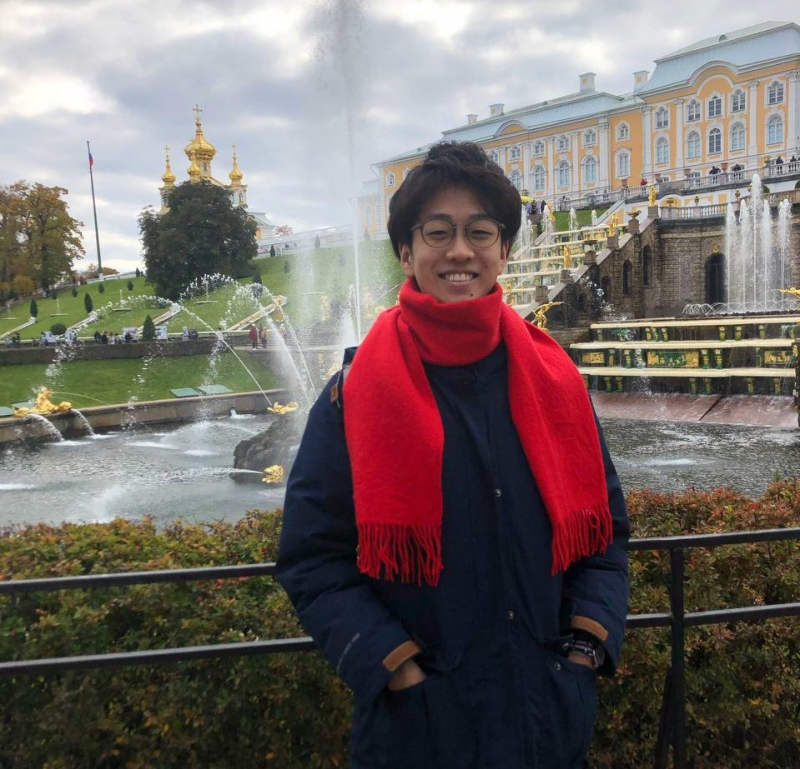
Kota talks about his favorite places in Russia and Japan. He also shares his opinion on Japanese food in Russia. Photo courtesy of the subject
What other practices are taught to kids in Japan?
The Japanese schooling system can be divided into three parts, namely, the elementary school (6 - 12 years), junior high school (13 - 15 years), and high school (16 - 18 years). School kids are taught to clean the school every day after lunch including the kitchen, the dining hall, the toilets, the classrooms, the gardens, etc. This is done to teach them from a very young age the importance of cleanliness. We are also taught not to abandon any food. We treat food with much respect and therefore never waste any. However, once you are at the university, you don’t need to clean the campus. There is special staff for maintaining the cleanliness.
How would you compare a sapsan with a shinkansen?
Although I have never traveled on a sapsan (Russian high-speed electric train), the major difference is obviously the speed. Shinkansen is the fastest bullet train in the world with a maximum speed of 320 Km/h. A sapsan’s maximum speed is around 250 Km/h. The other difference would be in the fares. Shinkansens are really expensive. I was actually quite surprised by the prices of express trains in Russia. I went to Vyborg with my friends, and it cost me only 700 rubles. To travel such a distance in Japan by shinkansen, would cost you at least around 4,000 rubles. So, I think it would be cheaper to travel with a sapsan than a shinkansen.
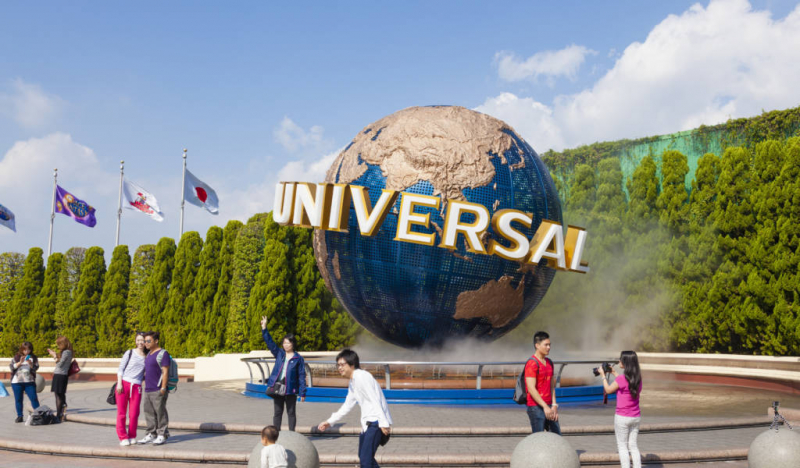
Kota’s favorite place in Japan is Universal Studios. That’s why he owns an annual pass. Credit: Japan Cheapo
What are some of your favorite tourist spots in Japan?
I am a fan of the Universal Studios theme park. I highly recommend everyone to visit this place. My favorite spot here is the Harry Potter area. It is simply magical to witness the massive Hogwarts castle and relish the food of the Harry Potter world. I have an annual pass for this theme park. I am so much in love with this place! There is also a Disneyland in Japan. However, I have not visited it much. If you want to relax and experience traditional Japan, you should visit Kyoto Prefecture. There you can feel the real beauty of Japan with its bamboo houses and shrines. There you will also find the most authentic Japanese cuisine like soba and tempura.
What are your plans for the winter in Russia?
My wish is to go ice skating on New Holland island during the winter. I really like skating and St. Petersburg is a great place to do that. I also want to skate on the frozen Neva river. My wish list also includes dog-sledding. I always wanted to witness the northern lights, so I also want to visit Murmansk during the winter. I have a hobby of maintaining a diary where I write my daily experiences. I've already written 360 pages! My plan is to publish it as a book once I go back to Japan. It is going to be a big fat book for sure. I also wrote a few blogs about my experiences. You can read them here.
